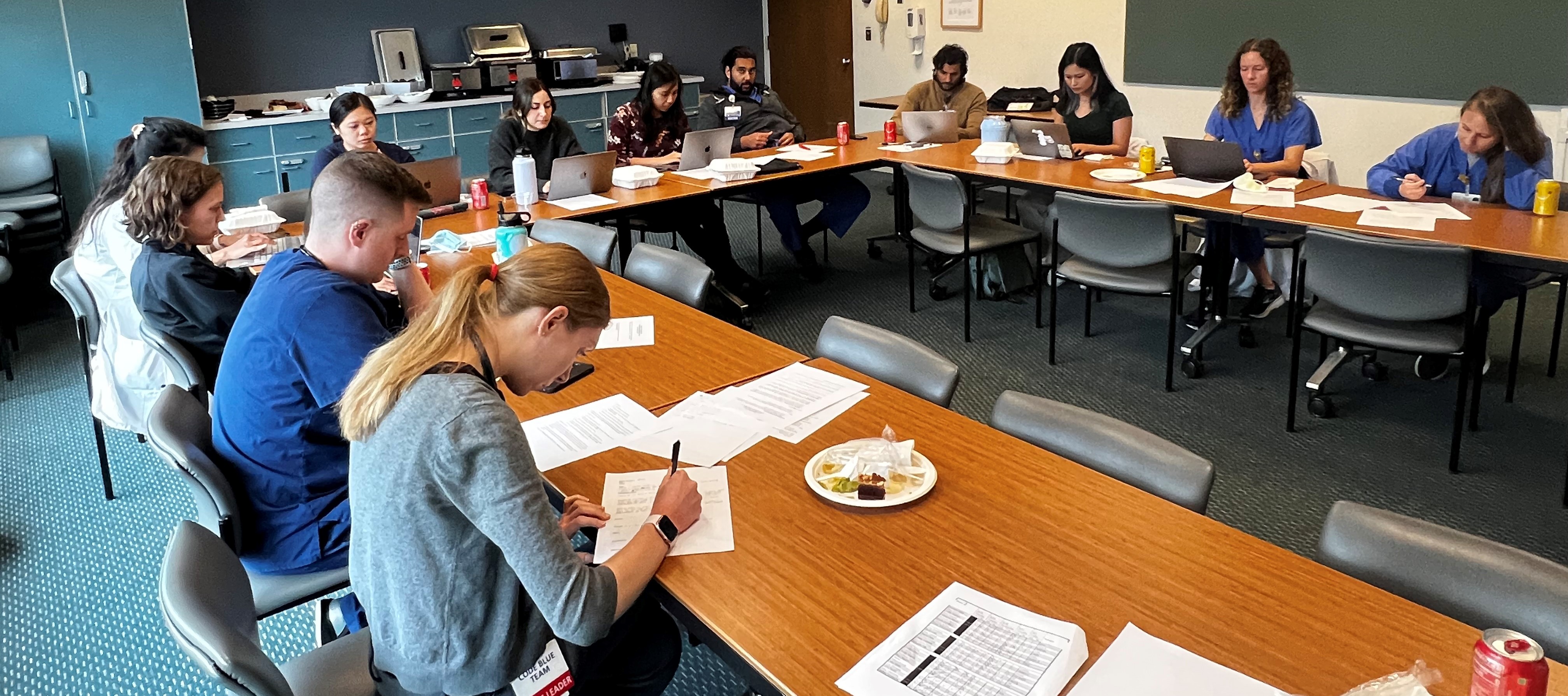
To further enhance educational opportunities, residents at Providence St. Vincent Medical Center are exposed to a variety of didactic conferences on a daily basis. These conferences encompass a variety of topics of interest to students, residents and attending physicians.
Morning Report is held four days a week. The format includes a case presentation by a resident, followed by discussion moderated by a member of the core faculty and discussion of current literature on the topic. This conference is structured with clearly defined learning objectives to maximize the educational content. Subspecialists are often present to further enhance the discussion. Presentations are based on patients encountered from General Medicine services, Intensive Care, and various subspecialties along with ambulatory and clinic rotations.
Noon Conference is held five days a week. Invited speakers from a wide-array of institutions provide Evidence-based informative lectures in the below disciplines. These lectures are designed to allow a systematic exposure to the important topics of Internal Medicine during a resident’s three years of learning. A curriculum and lecture schedule has been created around each of the below disciplines:
Medical Grand Rounds are held once weekly, providing an opportunity to connect with and learn from local leaders in the medical community on a variety of current topics. In addition, we host nationally known speakers several times each year to address broad themes, including our innovative series on Increasing Value in Health Care.
We use a Team-based Learning (TBL) model for some of our didactic sessions to create a unique and interactive learning experience. Using a flipped-classroom approach, residents review literature ahead of the session and then work in groups to complete quiz questions based on the session’s learning objectives. The last part of the session involves the application of their newfound knowledge to a real-life patient care scenario. Our faculty have undergone training in TBL and utilize evidence-based strategies to enhance learner retention. The TBL sessions focus on important primary care topics and are taught by our core faculty.
The Chief Resident facilitates and attends all of the conferences. The Chief leads several conferences as well including “A Case of the Mondays”- a clinical reasoning conference held during Morning Report every Monday in which the residents and faculty work through a fresh case as a group. The Chief also leads our monthly Morbidity and Mortality noon conference focusing on a systems based approach to improve patient care.
Each month we attend a “City Wide” Infectious Disease conference where Infectious Disease specialists from around the region discuss particularly perplexing or rare cases. Every 1-2 months we also attend the multi-disciplinary “Schwartz Center Rounds” discussing ethical, social and emotional issues that arise in caring for our patients. Additionally, we have small group Infectious Disease teaching rounds every Monday afternoon lead by an ID specialist. On Thursday afternoons we have small group Attending Rounds; a high yield session lead by the faculty attending physician from our Accountable Care Unit.
Twice a month morning report and noon conference are dedicated to preparation for the Internal Medicine Board examination. Sessions are taught by core faculty, subspecialists, and the Chief Resident and topics are selected based on the performance in subspecialty areas on the previous year’s In-Training Examination. In addition to supplementing knowledge on pathologies not commonly encountered, these sessions also focus on specific test taking strategies towards better performance on the ABIM Certification Examination as well as the USMLE Step III. Our program has invested in both MKSAP (medical knowledge self-assessment program) and NEJM Plus (New England Journal of Medicine) online question banks to allow for the most thorough and diverse board preparation possible.